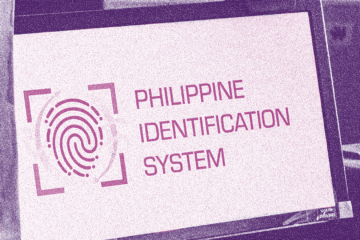How will mandatory SIM Card Registration impact women’s rights?
Mandatory SIM card registration poses risks to multiple fundamental human rights. Among others, it will mandate people to register their social media accounts. Most notably, freedom of expression, as well as the protection that anonymity gives to journalists, activists, human rights defenders, whistleblowers, and government critics, will be affected. The limitations on privacy and anonymity, will also impact the safety of many women, especially if they are survivors of violence. Marginalized communities such as women and the LGBTQI+ community, will also face compounding effects on their right to self-expression as their freedom to be anonymous is compromised.
There may be a multitude of reasons why someone may choose to use an alias on social media instead of their legal birth name. Women and members of gender-diverse communities are typically encouraged to use gender-neutral aliases online to protect themselves from unwarranted bullying, harassment or stalking online. Safety that is provided with online anonymity can give women and LGBTQI+ members the chance to exercise their freedom of expression, as well as use their voice to advocate for themselves or others without fear of retaliation. Therefore, many question the implementation of a bill aimed at promoting safety, when it will increase damage to the safety of women, advocates, and LGBTQI+ folks.
The right to anonymity also helps to provide some protection for women experiencing domestic abuse or intimate partner violence. Women facing violence may not come forward without the assurance of anonymity and privacy. Additionally, anonymity allows for women to seek out resources, find support groups, search for information privately, and speak out about their experiences safely. Anonymity also allows survivors the chance to protect themselves from any future contact from their abuser. To survivors of intimate partner violence or domestic abuse, SIM Card Registration is another way their safety is compromised.
In a discussion on the Impact of Mandatory SIM Card Registration on Women’s Rights, Jelen Paclarin of the Women’s Legal and Human Rights Bureau (WLB) further spoke about mandatory SIM registration’s harms to women’s safety.
“I handled a rape case back in 2000. [The victim-survivor] had a rich partner and the partner was able to manipulate the information on her cellphone. Nung ni-request yung exchanges nila, nakapag-produce yung kabilang kampo [ng evidence] na it was a consensual relationship and nagulat yung babae kasi there were no exchanges. Dito ako nagwo-worry. Baka instead of protecting women, we’re exposing them [to risk]. We’re worried that changes on this bill will prevent women from getting out of abusive relationships.”
[“I handled a rape case back in 2000. [The victim-survivor] had a rich partner and the partner was able to manipulate the information on her cellphone. When their communication exchanges were requested, the other camp was able to produce evidence that the relationship was consensual and the woman was shocked because they had no such exchanges. I worry about these kinds of incidents. Instead of protecting women, we’re exposing them [to risk].”]
She also added that mandatory SIM card registration further disenfranchises various women’s groups in the Philippines, such as indigenous women.
“It’s difficult for them to travel because they don’t have identification cards. It’s difficult for them to join in a Zoom kasi wala silang mga cellphones, wala silang gadget. Sometimes they also borrow gadgets from their neighbors na meron o minsan shared yan sa loob ng pamilya. At eto dadagdagan mo pa ng additional burden. Magpapa-require ka ng documents na ang indigenous women ay wala. Some of them don’t even have birth certificate. Makikita mo talaga ay malaki yung mae-echwapera na marginalized groups.”
[It’s difficult for them to travel because they don’t have identification cards. It’s difficult for them to join in a Zoom because they don’t have cellphones, gadgets. Sometimes they also borrow gadgets from their neighbors or sometimes the gadget they have is shared among family members. This is an additional burden. They will be required documents that indigenous women don’t hae. Some of them don’t even have birth certificates.”]
According to Naomi Fontanos, trans activist and Executive Director of GANDA Filipinas, mandatory SIM card registration is a blow to the freedom of LGBTQI+ community to participate in online spaces where they express their sexuality.
“Dito sa Twitter for example, meron tayong alter community. An alter account ay isang Twitter account that you create mainly to enjoy more sexual freedoms in spaces like Twitter. They are able to do both because of the relative anonymity that they enjoy when they use a SIM Card to register [alter] Twitter account. When SIM card registration is required, that might be harder [to do].”
[Here in Twitter, for example, we have an alter community. An alter account is a Twitter account created mainly to enjoy more sexual freedoms in spaces like Twitter. They are able to do both because of the relative anonymity that they enjoy when they use a SIM Card to register [alter] Twitter account. When SIM card registration is required, that might be harder [to do].”]
Fontanos further adds that trans people might be faced with ‘deadnaming’. ‘Deadnaming’ refers to using the name given to a person at birth and is often associated with their sex or gender marker at birth. It is considered to be a disrespectful and transphobic action that can deeply affect someone’s mental health. In addition, being forced to go by a legal name might out the person as being transgender and may have cascading effects on their lives such as outing them publicly. With the implementation of the bill, those who have been using their ‘lived names’ will be forced to revert to using their legal ‘dead names’ to avoid imprisonment . Unfortunately, the Philippines does not have a gender-recognition law that would enable trans folks to be able to change their sex or gender on official documentation or enable them to easily and legally change their names. Therefore, forcing individuals to use their legal names without allowing them to change them, is a devastating blow to the rights and safety of gender-diverse people.
In all, we can see how the SIM Card Registration Act has compounding intersectional effects on women and gender-diverse individuals. This act will not only risk the safety of numerous people who depend on anonymity to keep themselves safe, but it will also harm self-expression and the dignity of those who are already marginalized. The persisting narrative linking “anonymity to crime and criminalizing anonymity in order to make the internet safer from trolls”, is dangerous in its consequences that limit the scopes of anonymity and pseudonymity for women. The SIM Card Registration Act should not have such negative effects on the people for whom it aims to protect.#
This article was written by Drew Mackie, an intern at the Foundation for Media Alternatives, with inputs from the Gender & ICT Program team.



0 Comments